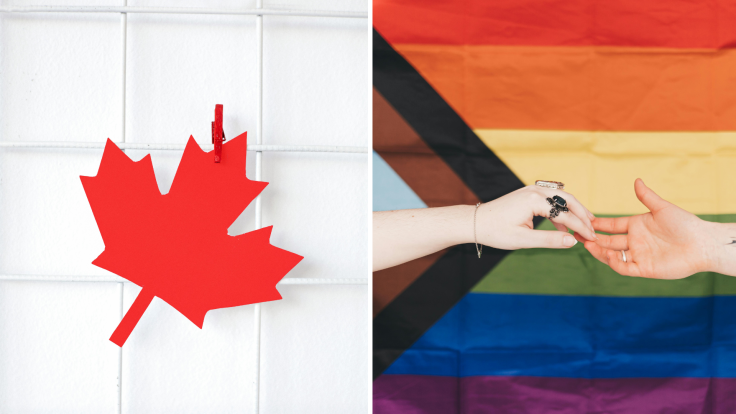Record Number of US Citizens Seek Asylum in Canada — With Lawyers Reporting Rise in Trans Applicants
Asylum claims by Americans in Canada hit record levels as more trans applicants seek refuge across the border

Canada is reporting a record surge in asylum claims from US citizens, with lawyers noting an increasing number of transgender applicants citing fear of persecution and lack of protections at home.
According to data from Canada's Immigration and Refugee Board (IRB), 204 American citizens filed asylum claims in 2024, the highest total since 2019. The upward trend has continued into 2025, with 245 claims made in the first half of the year already surpassing the previous year's total.
Applications are being filed across Canada. While cities like Toronto, Vancouver and Montreal host strong settlement and advocacy networks, no official breakdown by city has been published for US claimants.
Who Is Applying
While the asylum seekers come from different backgrounds, lawyers and advocacy groups say transgender Americans make up a growing share. Many describe harassment, restricted access to healthcare and fear under tightening laws in several US states. Reporting by Maclean's highlights how trans applicants increasingly view Canada as a last resort for personal safety and legal recognition.
Immigration lawyers point to political shifts in the United States, where state-level legislation has increasingly targeted LGBTQ+ rights. The Ontario Council of Agencies Serving Immigrants (OCASI) notes that Canada recognises LGBTQ+ identity as grounds for asylum, with applicants able to present evidence of discrimination, harassment, or denial of medical care.Canada's broader protections from gender recognition rights to public healthcare are seen as strong pull factors.
The IRB's official statistics confirm that US applicants remain a small proportion of total refugee claims, but the increase is striking. While asylum from countries with ongoing conflict is expected, claims from Americans highlight a growing perception that the US is no longer safe for all its citizens. Historically, US refugee claims in Canada were rare, as the Safe Third Country Agreement assumes both nations are secure. The new rise signals a break from that assumption.
How the Claims are Assessed
Canadian refugee law requires claimants to demonstrate a 'well-founded fear of persecution' based on race, religion, nationality, political opinion, or membership in a particular social group which explicitly includes sexual orientation and gender identity.
The IRB also considers supporting testimony, community statements and medical or legal records. According to OCASI's guidance, trans applicants may present evidence of denied healthcare, discriminatory laws, or community hostility to strengthen their case.
Reactions from Lawyers and Advocates
Refugee lawyers report emotional testimonies from US clients. Many trans applicants say they never expected to leave their home country but feel conditions have become intolerable. As one lawyer explained in Maclean's, 'These are individuals who thought of America as home but no longer feel safe. Canada, in their view, is a place where their identities are protected by law'.
Canada is experiencing record overall immigration, with refugee claims topping about 144,000 in 2023, one of the highest totals on record. While American applicants remain a minority, their growing presence has symbolic weight. The rise highlights a reversal: citizens of a country once seen as a global safe haven now seek protection abroad.
Conclusion
The record number of asylum claims from US citizens particularly transgender applicants underscores the shifting realities of safety and rights in North America. For those crossing the border, Canada is not just a neighbouring country, but a final hope for dignity and protection.
© Copyright IBTimes 2025. All rights reserved.




















